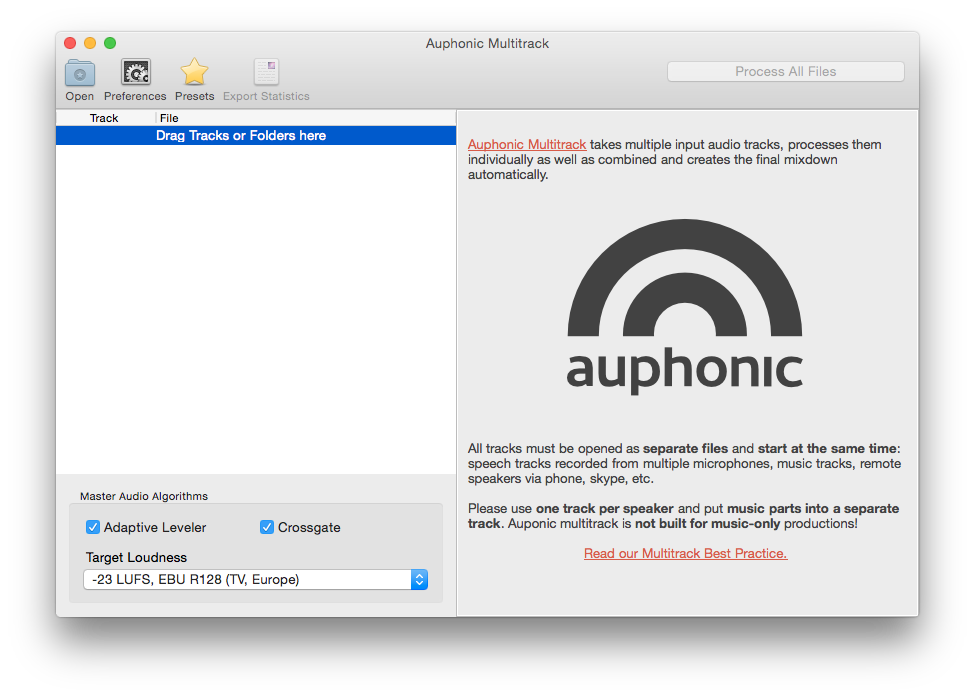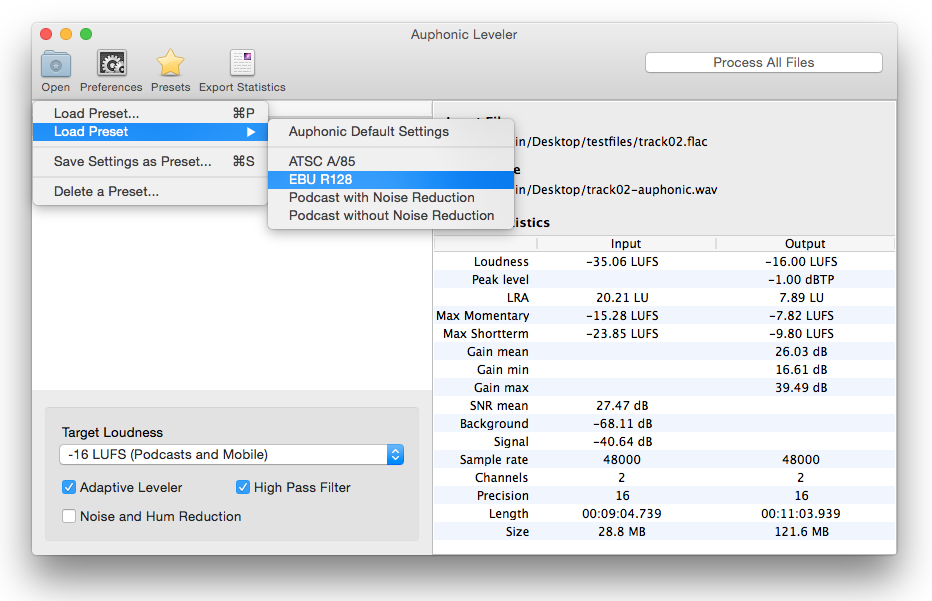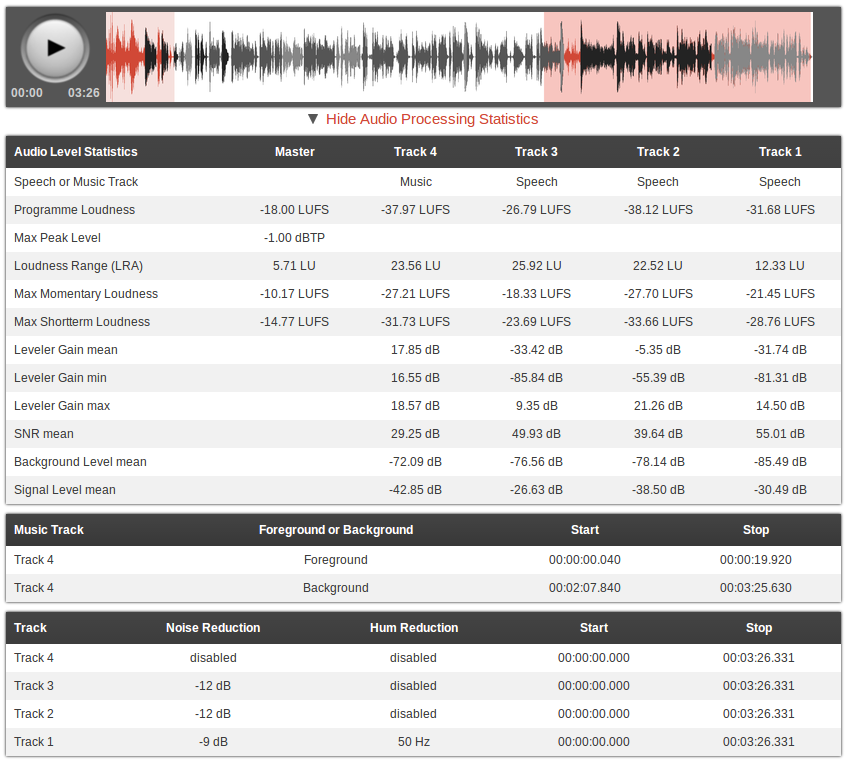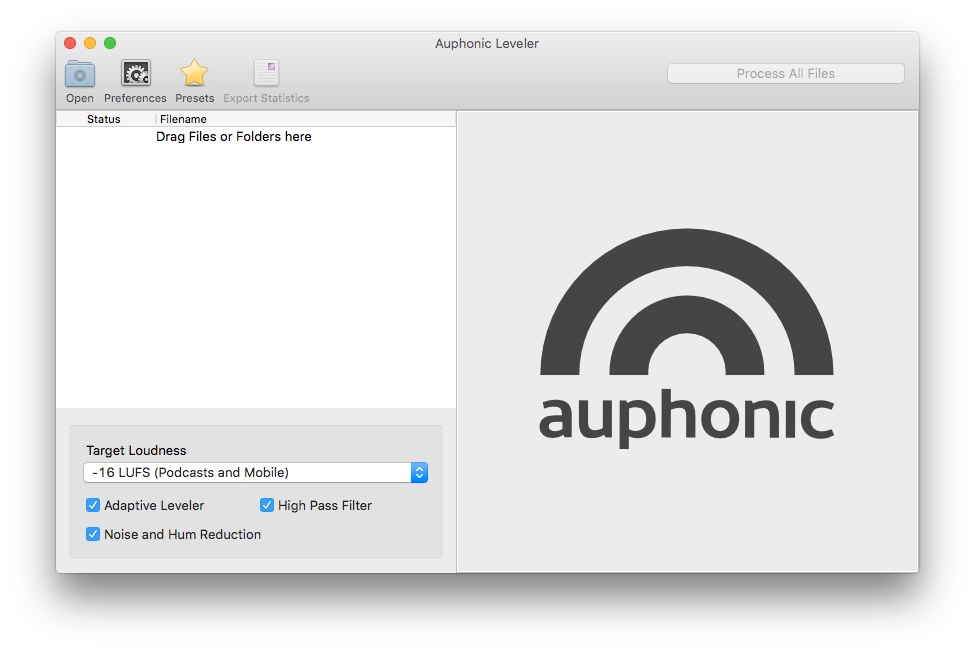After a very long Apple review time, we are finally allowed to release version 1.0 of the all new, native and free Auphonic Recorder app for iOS:
View Auphonic Recorder in App Store
This app is a co-production with one of the best iOS developers out there: Martin Hering (Vemedio, Instacast, etc.). Many thanks Martin for your great work!
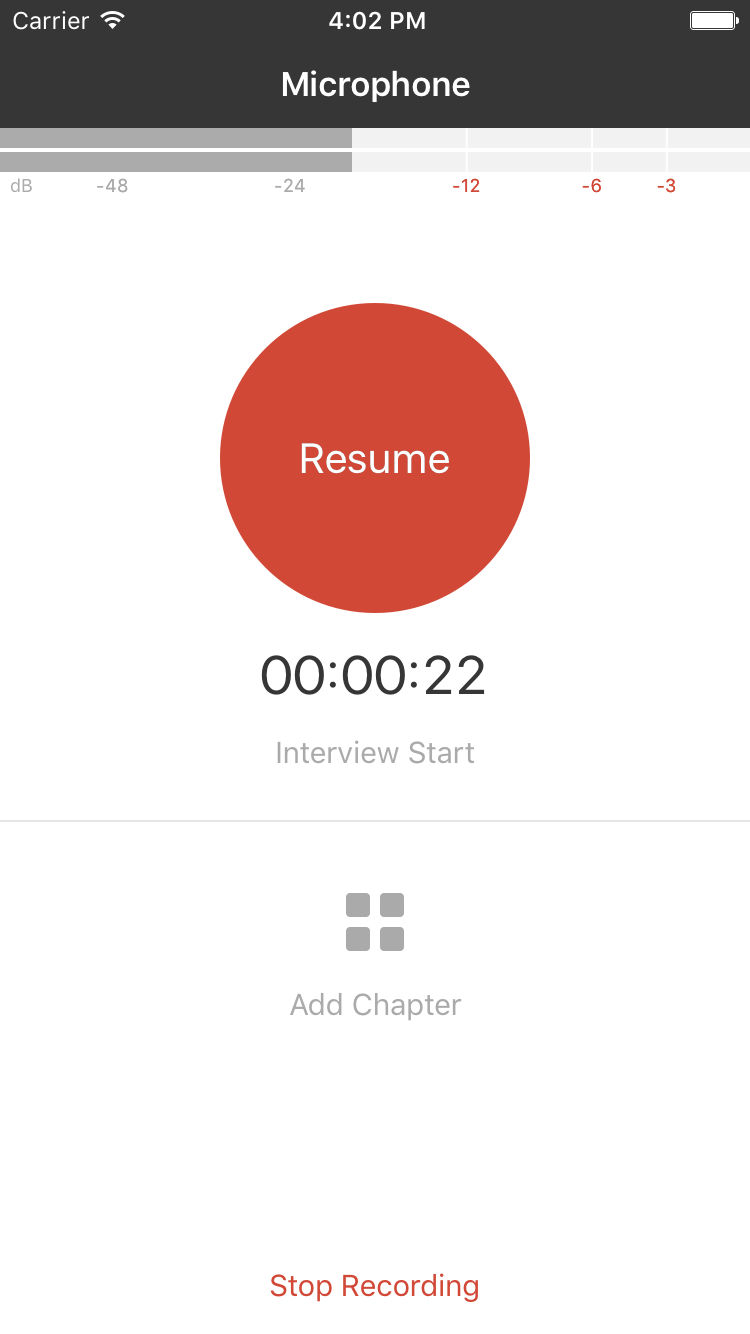
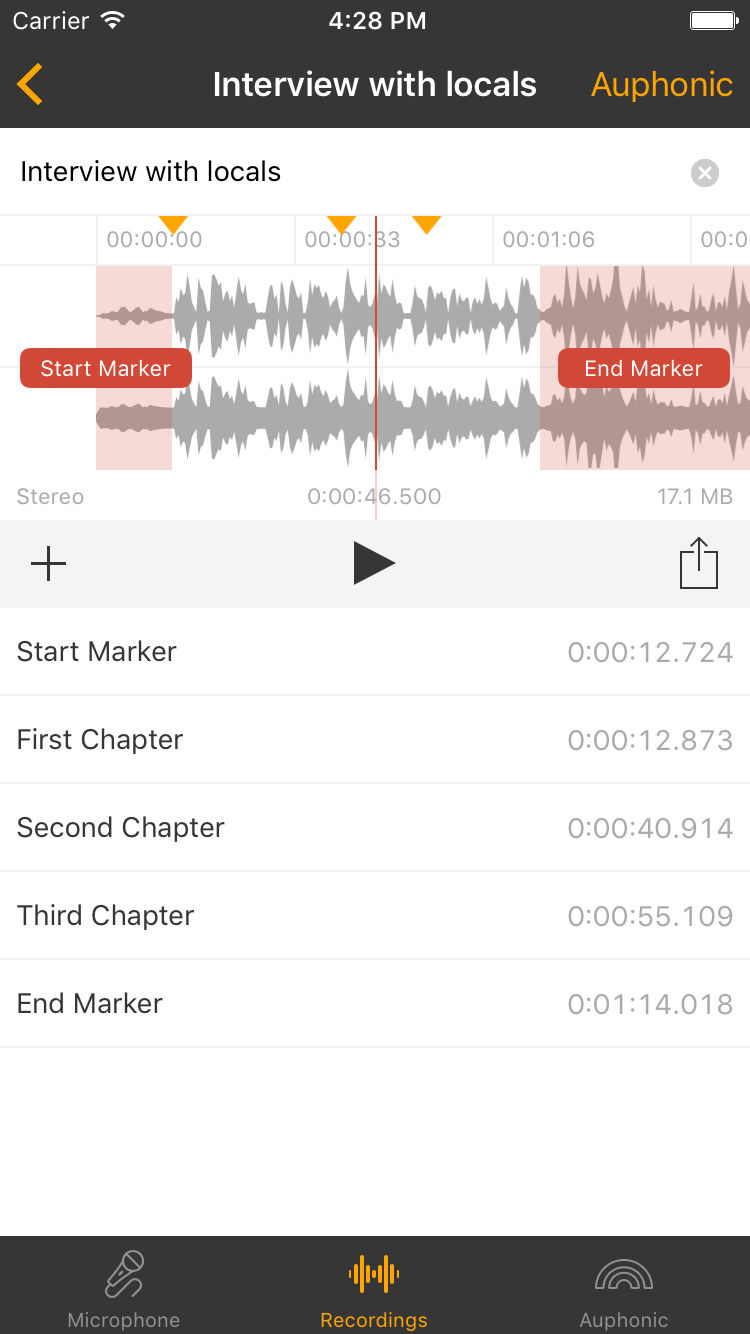
Recording (left) and Waveform (right) view of the Auphonic Recorder iOS app.
The focus of the Auphonic Recorder is robust and high-quality recording:
It is possible to choose between multiple microphones from your iPhone, an external USB interface, headsets, etc. and ...


